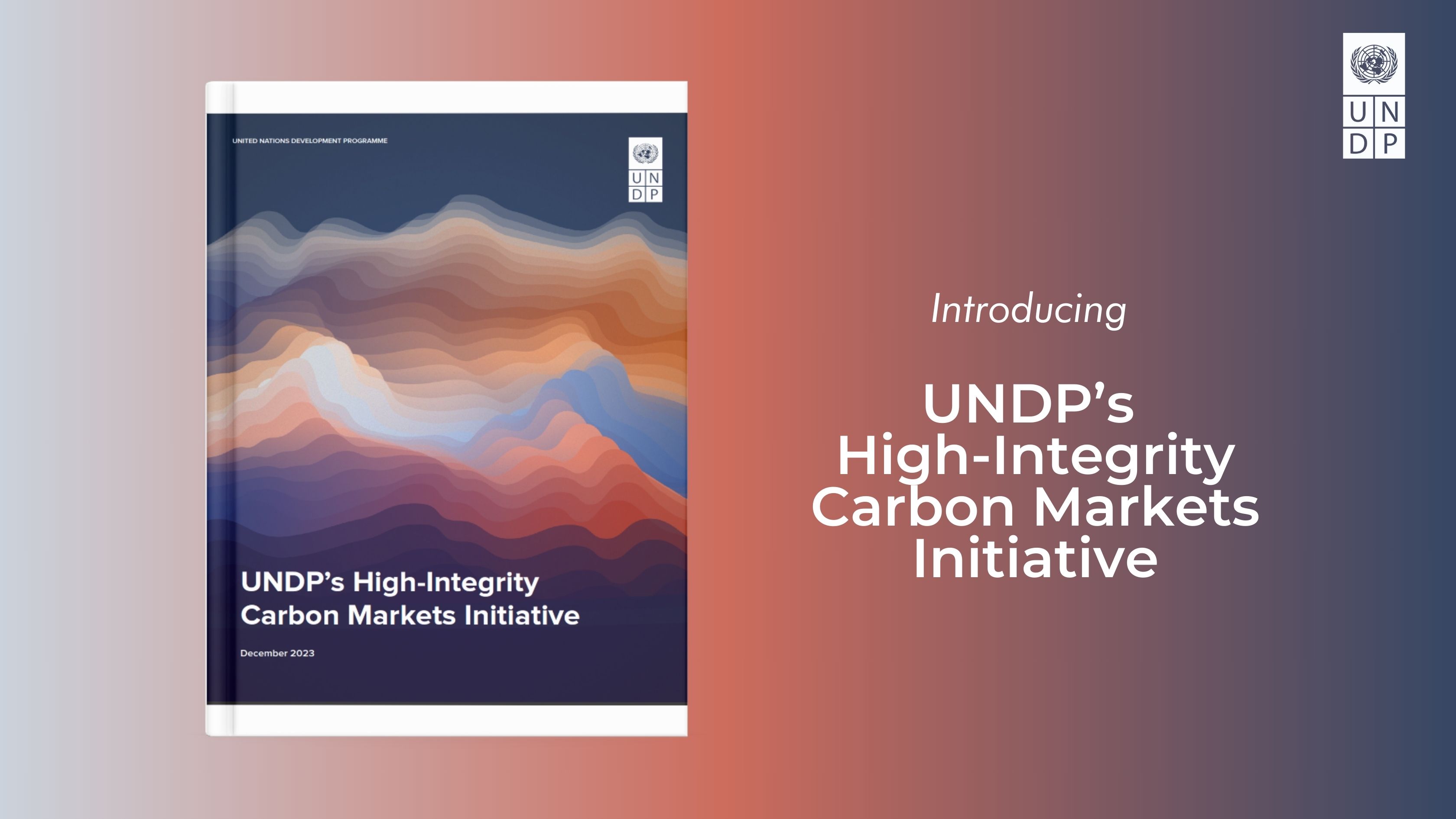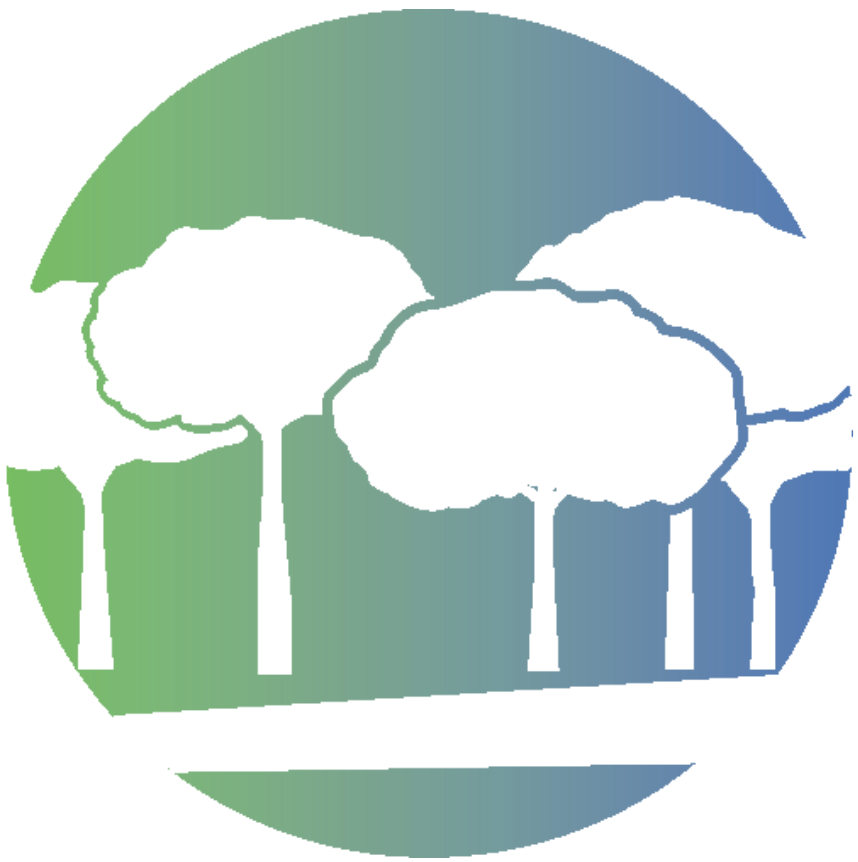
High integrity[1] is at the core of UNDP’s existing carbon markets portfolio[2], but there is still much more to be done – efforts need to be scaled up.
A focus on high-integrity aims to address valid concerns related to carbon markets, including issues related to double-counting of GHG emission reductions, human rights violations, and greenwashing.
If designed and managed to promote high integrity and climate ambition, carbon markets can enable the transition of economies to net-zero societies by mid-century, advancing the implementation of NDCs and accelerating progress across the 2030 Agenda.
The potential benefits for local communities consist of, inter alia, access to clean energy or clean water, reduced air pollution, improvement in health infrastructure, reduced time spent on the collection of firewood, job creation, technical training, water and soil retention and the protection of biodiversity.
These benefits contribute to the Sustainable Development Goals (SDGs) and address global challenges beyond climate change, such as inequality, environmental degradation, and constraints to social development, justice, and peace.
UNDP is collaborating with global initiatives to establish robust principles and guidelines that ensure high integrity across all types of carbon markets[3]. The work of these initiatives, alongside efforts by standard setting bodies, carbon credit ratings agencies and many others have led to greater convergence and consensus within the carbon market ecosystem of actors on what high integrity is and how to achieve it.
Putting high-integrity principles into practice is the focus of UNDP’s High Integrity Carbon Markets Initiative.
UNDP’s vision is to make carbon markets work for host countries, NDCs and the SDGs. UNDP will focus on supply side integrity, in an effort to level the playing field for host countries, but also landowners, farmers, households and rights-holders, including Indigenous Peoples, local communities and women – who contribute to and benefit from carbon crediting programs.
The initiative will seek to ensure all parties are equally informed and capacitated to strategically engage; that fairer terms, conditions and prices are negotiated with buyers; and importantly, that benefit sharing, SDG impacts and social and environmental safeguards are at the core of carbon program design and implementation. The intention is for carbon market investments and benefits to remain in the host countries.
Developing countries are well positioned to generate high-integrity emission reductions and removals. To produce quality carbon credits, countries need technical assistance to understand and operationalize the high-integrity principles.
Drawing on its global mandate, expertise and experience[4], UNDP will provide strategic holistic support on carbon markets to host country governments through its network of country offices. Countries will receive high-level strategic information and targeted technical assistance to access carbon markets finance, guided by principles for high ambition and environmental and social integrity, including consideration of Article 6, voluntary carbon market opportunities, and the establishment of domestic carbon markets mechanisms.
Specifically, UNDP will undertake the following activities:
• Convening diverse stakeholders, including governments, corporates, project developers, investors, civil society, indigenous peoples and local communities, women and others to collaboratively forge pathways to achieve high integrity carbon markets, while advancing climate and development objectives in a holistic and sustainable manner.
• Supporting governments to establish enabling policy, regulatory and legal frameworks and institutional capacities for sustainable implementation of high integrity carbon crediting programs.
• Integrating high integrity guardrails into host countries’ decision making and practices, ensuring their incorporation across all carbon crediting programs – at project, sectoral and jurisdictional levels.
To learn more, see UNDP’s High Integrity Carbon Markets Initiative and visit UNDP’s new Carbon Markets Work Area.
*Register here for virtual participation, for the upcoming launch event on December 4th, 2023 at COP28.
[1] High integrity on the supply-side (generation of carbon credits) means that emission reductions and removals are real, additional, have verifiable climate impacts, are aligned with the country’s NDC and supportive of higher ambition. In addition to this environmental integrity, there must be transparency in the institutional and financial infrastructure for carbon market transactions. There also must be a robust application of social and environmental safeguards to manage potential adverse project impacts and the promotion of positive, measurable sustainable development impacts. Demand-side integrity relies on entities buying high-integrity carbon credits and having real commitments to reduce emissions from their own operational and value chain processes.
[2] Including UNDP’s joint initiative with Climate Focus on Carbon Markets Access Strategies; the Carbon Payments for Development (CP4D) Facility (Article 6 readiness and ITMO agreements); and UNDP’s well-established forest carbon portfolio. UNDP, in partnership with the UN-REDD Programme, UNDP Climate Promise, Green Climate Fund (GCF), Governors’ Climate and Forests Task Force (GCFTF), Central African Forest Initiative (CAFI), Forests Carbon Partnership Facility (FCPF) and other key partners has supported 31 countries and 35 sub-national Jurisdictions in finalizing socially-inclusive REDD+ Strategies or Action Plans; 14 countries to establish costed REDD+ implementation/investment plans; and 20 countries to enhance the role of forests and land use in their updated NDCs. UNDP is also working closely with 3 pioneer countries entering into forest-carbon purchase agreement discussions with the LEAF initiative (over USD 200 million total).
[3] Including the United Nations Framework Convention on Climate Change (UNFCCC) Secretariat, working on Article 6; and the two leading voluntary carbon market integrity initiatives, the Integrity Council for Voluntary Carbon Markets (IC-VCM) to enhance the supply side, and the Voluntary Carbon Markets Integrity Initiative (VCMI) to address the demand side.
[4] UNDP has a global mandate to support countries in enhancing their NDCs and achieving the SDGs. UNDP has demonstrated leadership in raising the global bar on safeguards through its Social and Environmental Standards Policy, Procedures and Guidance – with a track record in establishing equitable benefit sharing arrangements; stakeholder engagement platforms, grievance mechanisms; respecting the rights of indigenous peoples; and promoting gender equality and women’s empowerment. UNDP implements the world’s largest and well-established mechanism to deliver funds to indigenous peoples and local communities, through its Small Grants Programme.




